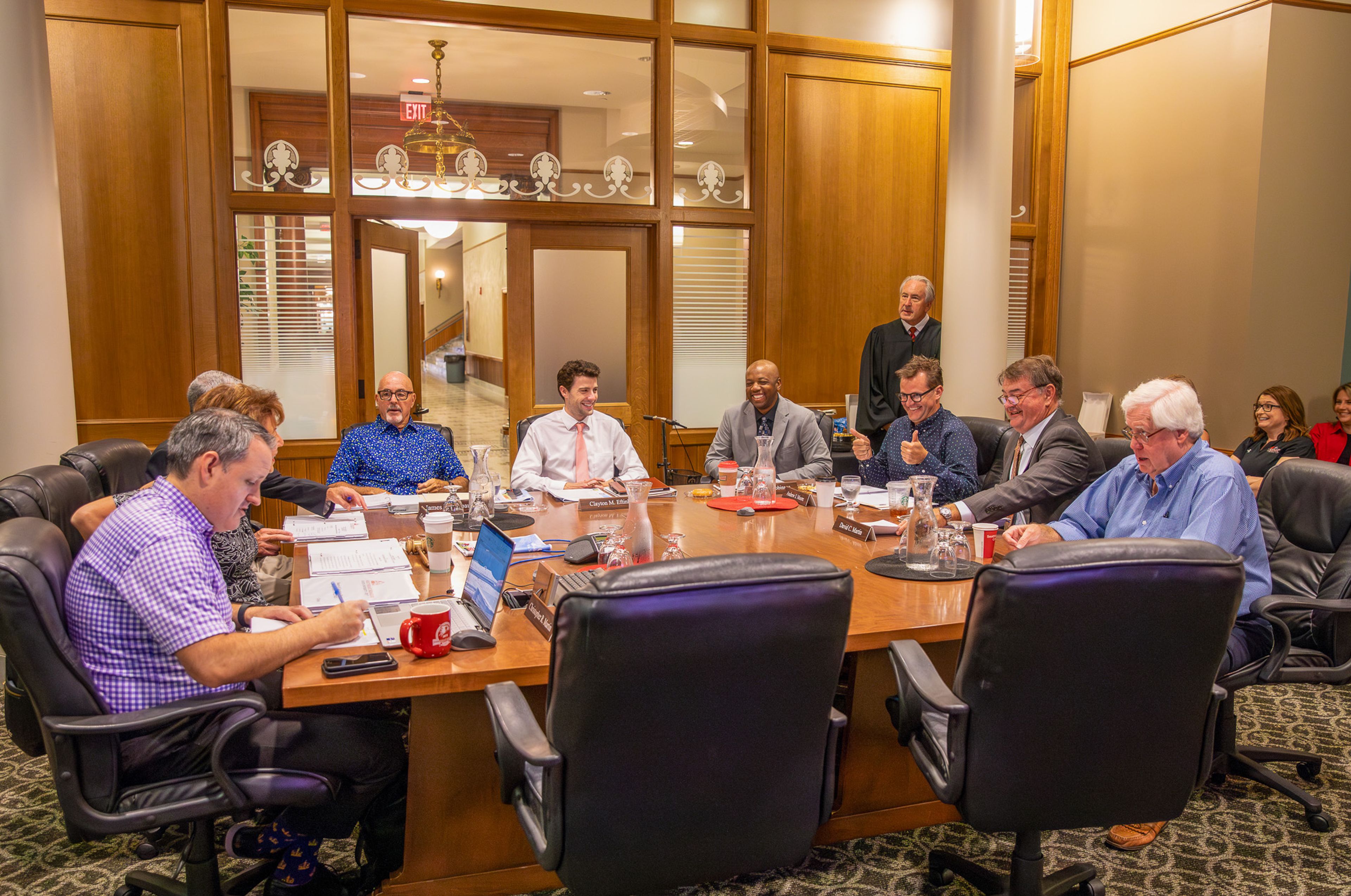Exploring the impact of SEMO’s Board of Governors on students and the university
Discover how SEMO's Board of Governors shapes university life and student experiences. From graduation approvals to tuition decisions, learn why understanding their role is crucial for students.
With the 2024-2025 academic year well underway, the Board of Governors has been meeting to discuss various topics and issues that have come up on campus.
The Board of Governors is a fundamental part of SEMO, making decisions that impact the university and students. Despite its importance, many students have not heard of them.
Freshman psychology and social work major Aubrey McCain wasn’t sure about their role.
“They probably do something with our government,” McCain said. “I’m not sure.”
Freshman psychology major Brooke Wheeler echoed a similar idea, saying, “They probably help with the leadership stuff of campus.”
While students might be unaware of the Board of Governors’s duties, they do recognize the governing role that they have on campus.
Chris Martin, secretary of the board, defined the Board of Governors as a body that oversees the university.

There are seven voting members on the Board of Governors, with one student representative as a non-voting member.
“The seven voting members serve six-year terms,” Martin said. “The student serves a two-year term. You can serve past those time periods because you serve at the will and pleasure of the governor. You serve until you are removed or replaced by the governor.”
The Board of Governors holds meetings throughout the year, including one on Oct. 4, to discuss issues such as the campus parking system and Americans with Disabilities Act (ADA) compliance.
According to Martin, every meeting is different from the others.
“Not one meeting is the same,” Martin said. “They deal with different topics for the most part... It’s not uncommon at a board meeting for a report item to come from the university president, for him to share updates, accomplishments, initiatives, things that are being worked on across divisions at the university.”
Reports not only come from the university president, but from a student invited to present to the board, the Student Government Association president, and the chair of the Faculty Senate.
Regarding decisions that directly impact students, the Board of Governors decides who is allowed to graduate.
“Action items that they tend to deal with can be approving candidates for graduation,” Martin said. “Each December and May, they always receive that motion, they review that material, and they’re the ones that give the final stamp of approval on that list.”
The Board of Governors not only decides who can graduate but also plays a large role in the university's finances, including student costs.
“Typically at our spring meeting, they’ll consider an action item related to room and board rates,” Martin said. “Followed in May by tuition and fees and then followed by June for the annual operating budget for the university.”
If a student has a particular concern that they want to be addressed by the Board of Governors, Martin stressed the importance of knowing your student representative and being involved with student government.
“Making sure that students know who that student representative on the Board of Governors is very important.” Martin said. “They can be that voice for the students. I think making sure that students are engaged with student government is another good opportunity… I think knowing who those leaders are and being comfortable with approaching them and sharing your concerns is a great way for them to be able to engage to the fullest at these meetings.”
According to SEMO’s website, the next Board of Governors meeting is scheduled for Dec. 13 at 9:00 a.m.








